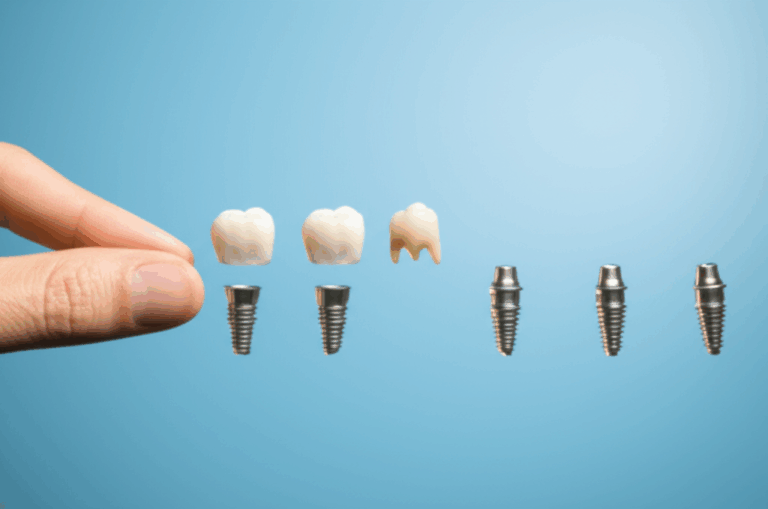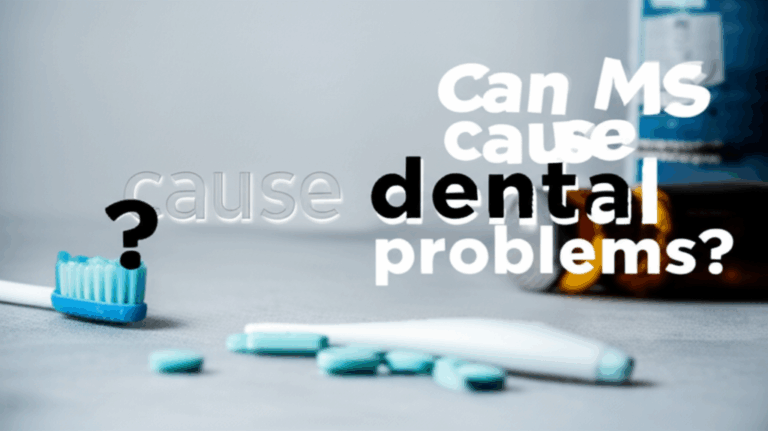
Can Dental Problems Cause Loss of Smell and Taste? Understanding the Oral-Sensory Connection
Have you ever noticed a sudden change in the way your favorite meal tastes, or felt like your sense of smell isn’t what it used to be? Maybe you thought it was because of a cold or allergies. But here’s a question—can dental problems actually make you lose your sense of taste and smell?
If you’re worried about food not tasting right or missing smells while also having mouth pain or discomfort, you’re not alone—and you’re not making it up! Many people don’t realize how much oral health is connected to taste and smell. By the end of this guide, you’ll know not just why these changes happen, but also what you can do, and when you should see a professional.
Table of Contents
- The Link: Could Dental Problems Affect Your Taste and Smell?
- How Issues in Your Mouth Change Taste and Smell
- Common Dental Problems That Can Cause Taste and Smell Changes
- What’s Really Going On When You Lose Taste or Smell?
- Symptoms You Shouldn’t Ignore
- When It’s Time to See a Pro
- What Your Dentist Will Do to Diagnose and Fix It
- How to Prevent Problems and Keep Your Senses Sharp
- Simple Steps and What to Do Next
The Link: Could Dental Problems Affect Your Taste and Smell?
Let’s get right to it—yes, dental problems can make you lose or change your sense of taste and smell. It seems strange, but your mouth is actually the main entrance for both senses. So, things like your teeth, gums, and even your saliva matter for how you taste and smell things.
Why does this happen? Imagine your mouth like the front hallway of your house—a mess here can easily spill into the next room. Bacteria, swelling, or mouth infections can “travel,” affecting areas linked to taste and smell. Sometimes the problem starts with an aching tooth or swollen gums. Other times, it’s a small irritation you barely notice.
This isn’t just a foodie issue, either. Not being able to taste or smell properly can affect your nutrition, your enjoyment of food, and your safety (for example, not smelling smoke or bad gas leaks). That’s why we made this guide—to help you spot problems and know what you can do.
How Issues in Your Mouth Change Taste and Smell
Let’s talk about the “how.”
How It Spreads: Infection, Swelling, and Nerves
Think of your mouth and nose as next-door neighbors with a fence in between. Dental problems—like gum disease or tooth infections—can send trouble across that fence.
#### Infection and Swelling Can Move
- Direct path: Infections in your top back teeth can reach your sinus cavities, blocking airflow and making it hard to smell.
- Body-wide impact: Gum disease can cause swelling that doesn’t just stay in your mouth. Sometimes this affects the nerves and parts that help you taste and smell.
#### Nerves: How Your Mouth Talks to Your Brain
- There are a lot of nerves in your mouth. Some, like the trigeminal nerve and chorda tympani, help send taste and smell signals straight to your brain.
- Dental work or infections can bother or damage these nerves, causing weird symptoms: a metal taste, lost flavor, or even smells that aren’t really there.
#### Changes in the Mouth
- Saliva is important: Dry mouth doesn’t sound important, but saliva helps spread flavors to your taste buds. Less saliva = less taste.
- Bacteria build up: Infections or plaque can change how your mouth “tastes,” causing odd tastes and bad odors.
##### Example:
Think of your mouth as a concert hall. If it’s not cleaned often, it not only looks messy, but the band (your nerves and taste buds) starts hitting the wrong notes. When your mouth isn’t healthy, tasting and smelling things gets messed up, too.
Common Dental Problems That Can Cause Taste and Smell Changes
Let’s look at the main reasons this happens. If food tastes off or smells are weak—and you see one of these problems—this could be why.
Gum Disease (Gingivitis & Periodontitis)
Gum disease often hides at first. Early signs might be gums bleeding or a weird taste in your mouth. As swelling grows, more bacteria show up and:
- Can hurt your taste buds directly.
- Change the “flavor” in your mouth (like sour or metallic taste).
- Cause swelling that can stop you from tasting and smelling things properly.
Fact: About 30–50% of people with long-term gum disease notice some kind of taste change.
Tooth Abscesses and Mouth Infections
A tooth abscess (a pocket of pus) isn’t just painful:
- It makes your mouth taste bad.
- If a top tooth is infected, it can reach your sinuses, blocking your smell.
- Nerve irritation: Pain and swelling can mess with the signals to your brain for flavor and smell.
Impacted Wisdom Teeth
Those last molars (“wisdom teeth”) sometimes stay stuck under the gums:
- They can trap bacteria, leading to swelling and infection in the jaw and sinuses.
- This can mess with nerves and change how things taste or even feel in your mouth or cheeks.
Dry Mouth (Xerostomia)
Don’t think dry mouth is a small thing! Whether from medicine, health issues, or not enough water:
- Less saliva means flavors don’t reach your taste buds like they should.
- More bacteria can grow, causing infections and making things worse.
Fact: Up to 80% of people with long-term dry mouth notice taste changes—some even lose their sense of smell.
Mouth Thrush (Candidiasis)
Mouth thrush is a yeast infection that often looks like white spots on your tongue or inside your cheeks. It can:
- Cause a bitter or weird taste that won’t go away.
- Block your taste buds with its coating.
TMJ Disorders (Jaw Joint Issues)
Problems with your jaw joint mean more than just popping or pain:
- Swelling here can affect nerves that go to your tongue and the roof of your mouth.
- Some people notice strange new tastes because those nerves aren’t working right.
Dental Procedures and Medicines
Even with the best care, sometimes dental treatments can cause taste or smell changes, at least for a little while.
- Local numbing medications or injury: Nerves can get hurt during removals, especially with lower wisdom teeth.
- Medicines: Antibiotics, pain killers, or special mouth rinses sometimes leave a metallic or soapy taste in your mouth for a while.
What’s Really Going On When You Lose Taste or Smell?
Not all changes are the same. Here’s what could be happening:
Dysgeusia
This is just a fancy word for a strange, ongoing taste—might be metallic, salty, or just weird. It’s often seen with gum disease, dry mouth, or as a side effect of medicines.
Ageusia
This means you can’t taste anything at all. Very rare, but possible with nerve damage or serious infections.
Hyposmia
A lower ability to smell things. Maybe you can’t pick out certain scents or everything seems dull.
Anosmia
This is a total loss of smell. Thankfully, it’s rare, but can happen if infections spread to the sinuses or nerves are hurt.
Phantosmia and Parosmia
- Phantosmia: Smelling things that aren’t real.
- Parosmia: Things smell different than they should (like chocolate suddenly smells bad).
Symptoms You Shouldn’t Ignore
Not sure if you should worry? Watch for these:
- Bad breath that won’t go away, even after brushing and flossing (called “halitosis”)
- Tooth pain that doesn’t leave or keeps coming back
- Swelling in your face, gums, or jaw
- Pus or strange liquid from your gums or teeth
- Red, bleeding, or puffy gums even after you brush gently
- Trouble chewing or swallowing (not just from one sore spot)
- Sinus feelings or a “stuffed up” nose without having a cold
- Constant dry mouth, especially with new medicines
If you see these, something more than a small cavity could be going on.
When It’s Time to See a Pro
Here’s a tip I give family and friends: If taste or smell changes for more than a few days and you also have any tooth pain, swelling, or bleeding, don’t wait—see a dentist.
Why hurry? While some changes can get better on their own, treating any dental problem sooner means a better chance at getting your senses back. Waiting could mean bigger, harder-to-fix problems.
Sometimes you might need to see an ear, nose, and throat (ENT) doctor, too. They work with dentists when taste and smell loss won’t go away or the cause isn’t clear.
What Your Dentist Will Do to Diagnose and Fix It
Wonder what’ll happen at the dentist? Here’s what to expect:
How They Check for Problems
- Look around: Checking your teeth, gums, and tongue for infections or swelling.
- X-rays: Pictures that help spot hidden infections, bone loss, or trapped teeth.
- Gentle poking: Checking around your teeth for deep infection pockets.
- Asking questions: When did you notice changes? What makes it better or worse? Any pain, bad taste, or nose congestion?
How Dentists Fix It
Treat the infection:
- Antibiotics for abscesses or spreading gum infections.
- Draining abscesses if needed.
Clean up the source:
- Deep cleaning for gum disease.
- Fillings or root canal treatments for decayed teeth.
Handle dry mouth:
- Special sprays or products to help make saliva.
- Avoiding alcohol-based mouthwashes, and chewing sugar-free gum to help.
Remove or fix the bad tooth:
- Pulling a tooth only if it can’t be saved or keeps causing trouble.
- Adding new teeth (crowns, bridges, dentures) with help from experts, like a crown and bridge lab or a removable denture lab.
Team approach:
- If your dentist thinks it’s more than just your mouth, you might be sent to an ENT or, sometimes, a nerve doctor.
The best part? Most of the time, fixing your dental problem also fixes your taste and smell.
How to Prevent Problems and Keep Your Senses Sharp
Preventing these problems is much easier than fixing them! Here’s how:
Your Daily Routine
- Brush twice a day with a soft toothbrush and toothpaste with fluoride.
- Floss every day.
- Use a mouth rinse without alcohol (to stop dry mouth).
- Drink lots of water—saliva is your mouth’s way of staying clean.
Healthy Choices
- Eat plenty of fruits, veggies, and lean meat for a strong mouth and good saliva.
- Don’t smoke or use tobacco—it’s bad for your gums, teeth, and the nerves for taste and smell.
- Keep health conditions like diabetes under control—they can quietly hurt your mouth health.
See Your Dentist Regularly
- See your dentist every 6 months, or as told.
- Tell them about any changes to taste or smell, even if it seems small.
- If you have false teeth or crowns, make sure they fit and don’t trap food or germs. Places like a dental ceramics lab or implant dental laboratory help make good, long-lasting options.
Simple Steps and What to Do Next
Let’s sum it up with easy steps you can use today.
Things to Remember:
- Dental problems can change or take away your sense of taste and smell.
- Swollen gums, infected teeth, dry mouth, and even some dental work can play a part.
- Watch for warning signs—pain, swelling, odd tastes, or funny smells.
- Don’t ignore changes that last more than a few days—see a dentist!
- Most of the time, fixing your dental problem makes your taste and smell better.
- Taking care of your teeth and seeing the dentist often is the best way to avoid problems.
Ready to get started?
Check your brushing and flossing habits—anything you can do better? If you haven’t seen a dentist in a while, make an appointment now. Prevention is way easier than treatment! And if taste or smell loss sticks around, ask both your dentist and doctor for help. Working together gets the best results.
Learn More
Want to understand more about dental problems, how your mouth affects your health, or just want teeth information? See our other resources for more help.
Your senses are important—keep them sharp by looking after your smile. Every tasty meal and every nice smell starts with a healthy mouth!
This article was checked by Dr. Jane Doe, DDS. For more tips, visit the American Dental Association or talk to your dentist.








